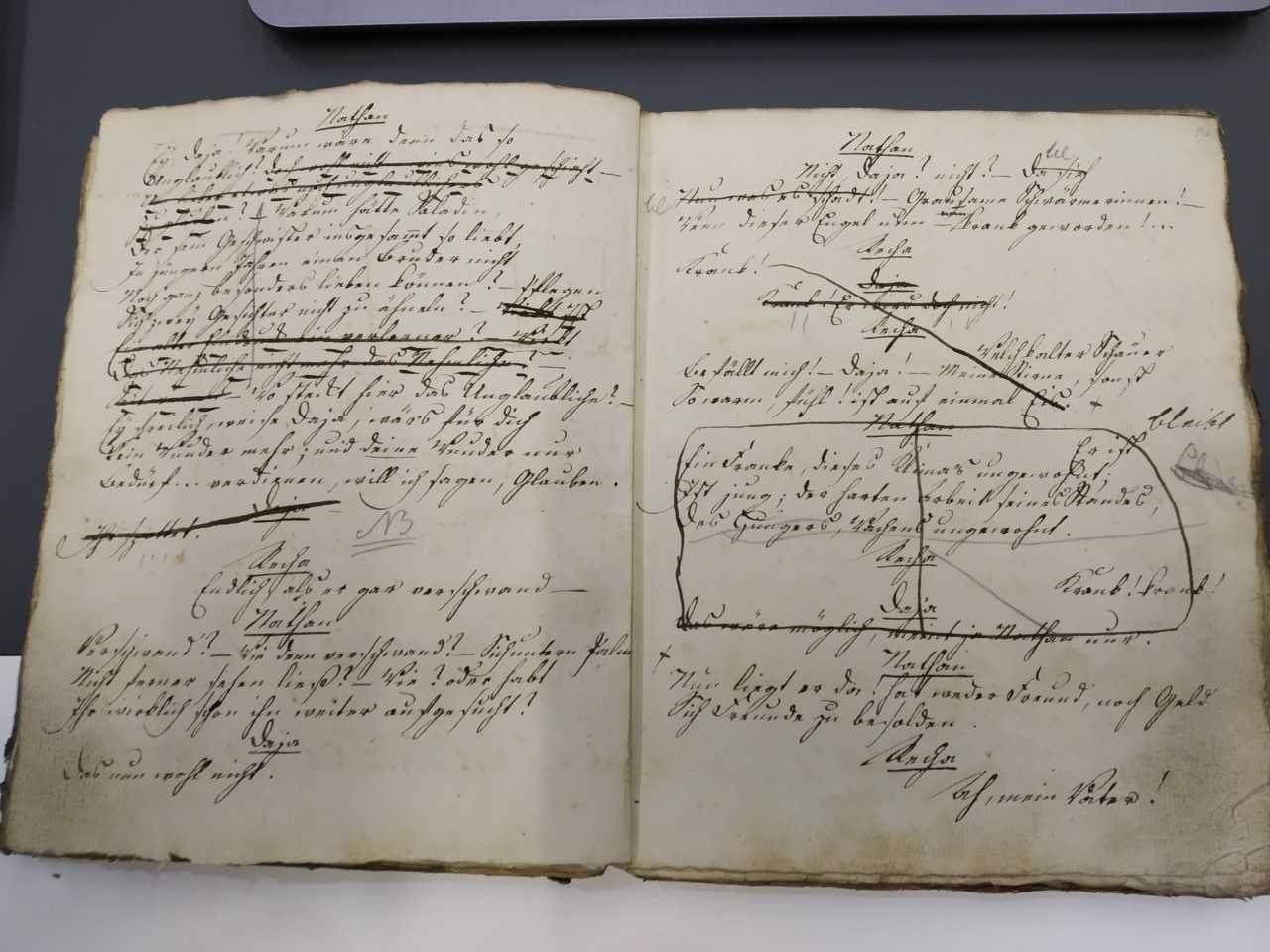Workshop ReportLayers of Authority – Authority of Layers
11 January 2022
Many written artefacts are in use over a long period of time. This results in the formation of different layers, which can reflect relations of hierarchy and authority but also gain authority themselves. An online workshop at CSMC explored the diversity of multilayered written artefacts.

From 2-3 December 2021, the CSMC hosted the online workshop ‘Layers of Authority – Authority of Layers: On the Internal Dynamics of Multilayered Written Artefacts and their Cultural Contexts’, organised by José Maksimczuk, Szilvia Sövegjártó, Thies Staack, and Alexander Weinstock.
The workshop provided an interdisciplinary forum to discuss multilayered written artefacts from various cultures. In particular, contributors analysed the possible hierarchies between layers and the authority expressed through their formatting and/or content. In nine presentations, the speakers shared their insights into multilayered written artefacts from European, West African, as well as South, East, and Southeast Asian manuscript cultures, spanning the millennium from the 10th to the 20th century.
The contributions clearly exhibited the great variety of layers in written artefacts and also highlighted some of the settings in which layering typically occurs. For example, manuscripts produced and used in the context of theatrical or musical performance testify to the complex processes of negotiation between the various agents involved in the staging of a theatre play or the arrangement of a piece of music. Manuscripts from a scholarly or educational environment often show traces of long-term engagement with the artefact and its contents in glosses, corrections or annotations, no matter if they were used by only one individual or by a series of scholars or students. Some contributions showed how complex the task of editing the content of such manuscripts can be.
Authority and hierarchy can influence multilayered written artefacts in various ways and are liable to change.
Two additional aspects were brought into the discussion through multilayered written artefacts from everyday culture: calendrical diaries and music albums. The former showcase the complex interdependence of handwriting and print; the latter illustrate that for some written artefacts, layers are essential rather than optional. Finally, a manuscript produced for commemorative purposes over several years alerted the participants to the fact that layers can be difficult to detect on a material level if their producer(s) aimed at a homogenous appearance. Going beyond such hardly detectable phenomena of layeredness, the keynote lecture by Eva Wilden took the discussion one step further, analysing reverberations of multilayered written artefacts in later copies. Depending on the choices of a copyist, layers in the model can be rejected or accepted, which can have a significant impact on textual transmission.
Although all contributions were at least implicitly concerned with aspects of authority in connection to layering, it became clear that the notion of authority was most productive for multilayered written artefacts with layers produced by more than one individual. It was also demonstrated that authority and hierarchy can influence and become manifest in multilayered written artefacts in various ways and that hierarchies are liable to change. This concerns not only the authority of individuals who produce and use these written artefacts, but also phenomena like the authority of print over handwriting – or vice-versa. The papers presented at this workshop are planned to be published in a special issue of manuscript cultures.
The organisers
José Maksimczuk is a research associate in Greek Studies and works on the project 'Polygenetic manuscripts in the transmission of Aristotle’s Physics, Biology, Theory of Science and Ethics'.
Szilvia Sövegjártó is an Assyriologist and Principal Investigator of 'Colophons in Sumerian and Akkadian Literary Manuscripts from 3rd and 2nd Millennium BCE Mesopotamia'.
Thies Staack is a Sinologist and Principal Investigator of 'Folk Healing in Late Imperial China and Formatting Practices in Medical Manuscripts'.
Alexander Weinstock is a research associate in German Studies and Theatre Studies and works on the project 'Multilayered Writing in Hamburg Prompt Books and Playbooks since the 18th Century'.


